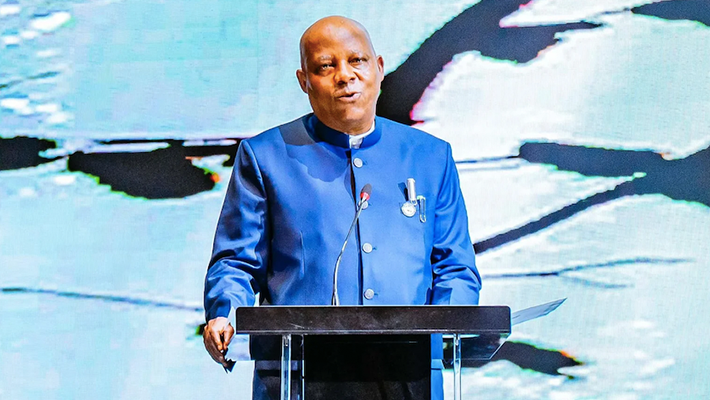By Atoyebi Nike
Nigeria is adopting artificial intelligence and advanced climate technologies to transform its food system and address growing hunger, Vice President Kashim Shettima said on Monday.
Speaking at the United Nations Food Systems Summit Stocktake (UNFSS+4) in Addis Ababa, Ethiopia, Shettima said the government is now using AI, geospatial analytics, and satellite-driven climate intelligence as key tools in agriculture. He said these technologies are being deployed to monitor food production, improve transparency, link producers to markets, and reduce waste along the value chain.
According to Shettima, Nigeria is investing in Special Agro-Industrial Processing Zones developed with support from the African Development Bank and IFAD. He described the zones as engines of transformation that are creating jobs, attracting private investment, and connecting rural farmers to national and international markets.
He emphasized that food production alone is not enough, stating that a sustainable food system must also be a healthy one. Nigeria, he said, is scaling up school feeding programs, nutrition-sensitive agriculture, and community-led nutrition initiatives such as the Nutrition 774 program. The initiative is designed to place all of Nigeria’s 774 local government areas at the center of nutrition delivery.
The Vice President noted that food and nutrition security are now priorities under Nigeria’s National Development Plan (2021–2025) and the Nigeria Agenda 2050. He also referenced the Federal Executive Council’s recent approval of the National Multi-Sectoral Plan of Action for Food and Nutrition, aimed at strengthening food policy through newly established Nutrition Departments in key ministries.
Shettima told world leaders that Nigeria is committed to building resilient, inclusive, and technology-driven food systems. He described the summit as a call to action, warning that the effects of conflict, climate shocks, market instability, and weak policy decisions are worsening global hunger.
Other global leaders at the summit echoed similar concerns. Ethiopian Prime Minister Abiy Ahmed called for stable funding for African agriculture, while UN Secretary-General António Guterres said in a recorded message that food systems reflect issues beyond hunger, including climate, justice, and human dignity. Guterres warned that despite earlier promises, global hunger has increased since 2021 due to conflicts, economic instability, and reduced development aid.
Shettima said Nigeria intends to lead in reversing these trends by using innovation, strategic partnerships, and people-centered programs to secure long-term food and nutrition security.


